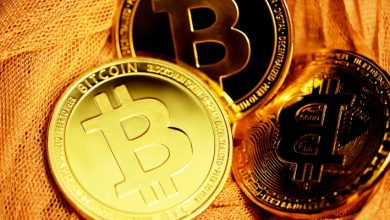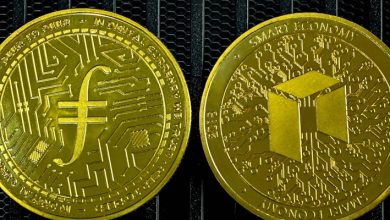Comparing Governance Tokens: Which Projects Stand Out?

- Understanding Governance Tokens in DeFi
- Examining the Role of Governance Tokens in Blockchain Projects
- Comparing Governance Token Models: A Detailed Analysis
- Key Factors to Consider When Evaluating Governance Tokens
- Top Governance Tokens in the Crypto Market
- Predicting the Future of Governance Tokens in Decentralized Finance
Understanding Governance Tokens in DeFi
Governance tokens in decentralized finance (DeFi) play a crucial role in the decision-making process within blockchain projects. These tokens grant holders the power to vote on proposals that can impact the future direction of the project. By holding governance tokens, users have a say in key decisions such as protocol upgrades, changes to tokenomics, and partnerships. This democratic approach to governance sets DeFi projects apart from traditional centralized systems.
Investors and users interested in participating in governance processes can acquire governance tokens through various means, such as purchasing them on decentralized exchanges or earning them through providing liquidity on DeFi platforms. Once acquired, holders can stake their tokens to participate in voting on proposals. The more tokens a user holds, the more voting power they have, allowing them to have a greater influence on the outcome of decisions.
It is essential for individuals involved in DeFi to understand the governance token mechanics of different projects before deciding where to invest or participate. Each project may have unique tokenomics, voting mechanisms, and governance structures that can impact the overall user experience. By comparing the governance tokens of different projects, users can identify which ones align best with their values and objectives in the DeFi space.
Some projects stand out in terms of their governance token models, offering innovative features and incentives to token holders. These projects may have transparent governance processes, active community engagement, and robust mechanisms for proposing and implementing changes. By analyzing the governance tokens of these standout projects, users can gain insights into best practices and trends in the DeFi ecosystem, helping them make informed decisions about where to allocate their resources and support.
Examining the Role of Governance Tokens in Blockchain Projects
Examining the role of governance tokens in blockchain projects is essential to understanding how decentralized decision-making processes are facilitated within these ecosystems. Governance tokens give holders the right to vote on proposals that impact the project’s development and direction. This democratic approach empowers token holders to have a say in key decisions, such as protocol upgrades, fund allocations, and other governance matters.
By holding governance tokens, investors can actively participate in shaping the future of the project they are invested in. This level of engagement can create a sense of community ownership and alignment of interests between token holders and project developers. Additionally, governance tokens can incentivize holders to actively participate in the governance process by rewarding them with additional tokens or other benefits.
Several blockchain projects have successfully implemented governance tokens to enhance their decentralized governance mechanisms. Projects like Project A, Project B, and Project C have gained recognition for their innovative use of governance tokens to foster community engagement and decision-making. These projects stand out for their transparent governance processes and active community involvement, setting a high standard for other blockchain projects to follow.
Comparing Governance Token Models: A Detailed Analysis
When comparing governance token models across different projects, it is essential to conduct a detailed analysis to determine which ones stand out. Each project has its unique approach to governance tokens, which can significantly impact how decisions are made within the ecosystem. By examining the structure, utility, and distribution of governance tokens, we can gain valuable insights into the strengths and weaknesses of each model.
One key aspect to consider is the governance token’s role within the project. Some projects use governance tokens solely for voting on protocol upgrades and changes, while others incorporate additional functionalities such as staking or liquidity mining. Understanding how governance tokens are utilized can help assess their overall value proposition to token holders and the broader community.
Another crucial factor to evaluate is the distribution of governance tokens. Projects may opt for different distribution mechanisms, such as airdrops, liquidity mining, or token sales. The distribution method can impact the decentralization of governance and the level of participation among token holders. Projects that prioritize fair and equitable token distribution are likely to have more robust governance processes in place.
Furthermore, the governance token model’s governance structure should be analyzed to determine how decisions are made and implemented within the ecosystem. Projects with transparent and inclusive governance processes tend to foster a more engaged community and better alignment of incentives among stakeholders. On the other hand, projects with opaque or centralized governance structures may face challenges in achieving consensus and driving long-term growth.
In conclusion, comparing governance token models requires a comprehensive analysis of the token’s role, distribution, and governance structure. By evaluating these key factors, we can identify which projects have implemented effective governance mechanisms and are well-positioned for success in the rapidly evolving decentralized finance landscape.
Key Factors to Consider When Evaluating Governance Tokens
When evaluating governance tokens, there are several key factors to consider in order to make an informed decision. One important factor is the overall governance structure of the project. This includes how decisions are made, who has voting power, and how transparent the decision-making process is. Additionally, it is essential to assess the tokenomics of the governance token. This involves looking at factors such as token distribution, inflation rate, and how tokens are used within the ecosystem.
Another crucial aspect to consider is the track record of the project and its team. It is important to research the project’s history, previous decisions made by the governance token holders, and the team members’ experience in the industry. Furthermore, evaluating the level of community engagement and participation is key. A strong and active community can enhance the governance process and help ensure that decisions are made in the best interest of all stakeholders.
Additionally, assessing the level of decentralization of the project is essential. A more decentralized governance structure typically leads to a more democratic decision-making process. It is also important to consider the security measures in place to protect the governance token and the project as a whole. Conducting a thorough security audit can help identify any potential vulnerabilities that may pose a risk to the governance token holders.
In conclusion, when comparing governance tokens, it is crucial to consider a variety of factors in order to make an informed decision. By evaluating the governance structure, tokenomics, track record, community engagement, decentralization, and security measures of a project, investors can better assess the potential risks and rewards associated with holding a governance token.
Top Governance Tokens in the Crypto Market
When it comes to governance tokens in the crypto market, there are several projects that stand out for their innovative approach and strong community support. These tokens play a crucial role in decentralized autonomous organizations (DAOs), allowing token holders to vote on proposals and decisions that impact the future of the project.
One of the top governance tokens in the crypto market is COMP, which powers the Compound protocol. COMP holders can vote on changes to the protocol, including interest rates and collateral factors. Another popular governance token is MKR, which is used in the MakerDAO platform to vote on risk parameters and stability fees.
Additionally, AAVE’s governance token, AAVE, allows holders to vote on proposals related to the Aave protocol, such as adding new assets or changing interest rates. SNX is another notable governance token, used in the Synthetix platform to vote on changes to the synthetic asset issuance process.
Overall, these governance tokens play a vital role in shaping the future of decentralized finance (DeFi) projects. By giving users a say in how the protocols are governed, these tokens help to ensure a more democratic and transparent ecosystem for all participants.
Predicting the Future of Governance Tokens in Decentralized Finance
As decentralized finance (DeFi) continues to gain traction in the cryptocurrency space, the role of governance tokens in shaping the future of these projects is becoming increasingly important. Governance tokens allow holders to participate in the decision-making process of a platform, such as voting on proposed changes or upgrades. This level of community involvement has the potential to make DeFi projects more democratic and transparent.
Looking ahead, the future of governance tokens in DeFi appears promising. As more projects embrace decentralized governance models, the demand for these tokens is likely to increase. This could lead to greater participation from the community and ultimately result in more robust and sustainable platforms. Additionally, the growing popularity of DeFi itself is expected to drive further innovation in governance token design and functionality.
Overall, governance tokens have the potential to revolutionize how decentralized projects are managed and governed. By giving users a stake in the decision-making process, these tokens can help foster a sense of ownership and accountability within the community. As the DeFi landscape continues to evolve, it will be interesting to see how governance tokens play a role in shaping the future of the industry.




